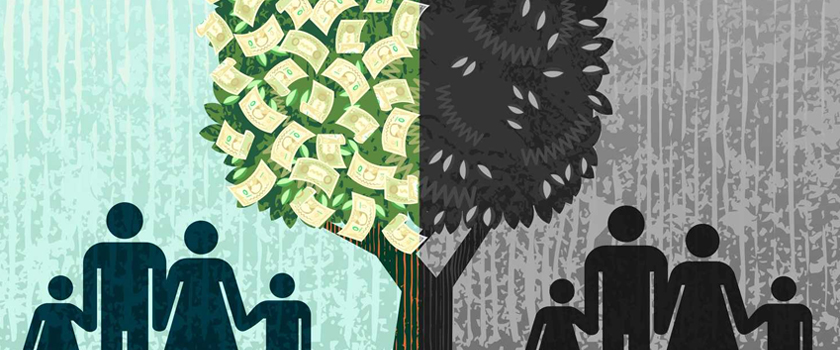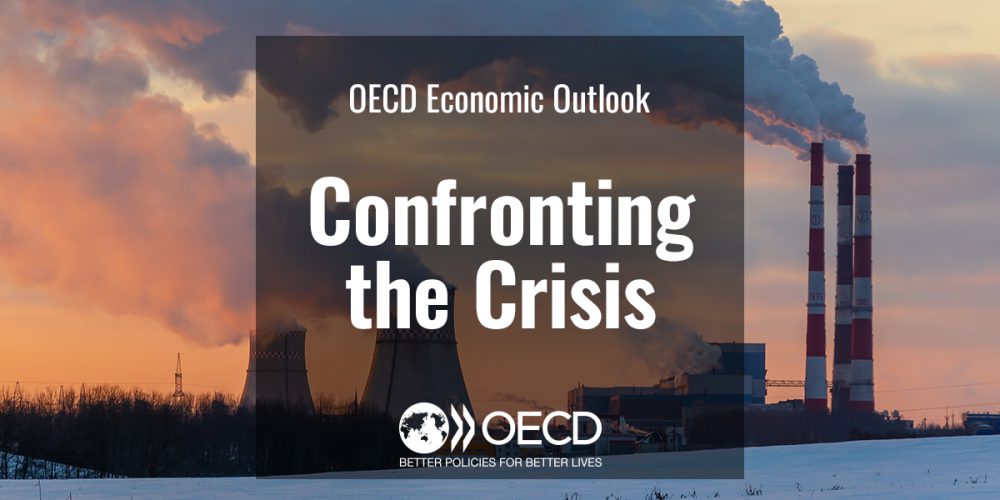Gap between rich and poor may be reaching its peak, Credit Suisse suggests

The gap between rich and poor may be reaching its peak.
In a report 14 November on global wealth, Credit Suisse Group AG noted a shift away from equities and other securities to physical assets like property. That may be a harbinger of a return to the broad-based wealth creation that characterized the years before the 2008 financial crisis, when most levels of society benefited from economic growth, analysts at the Swiss bank’s Research Institute said.
“In recent years, wealth inequality has trended upwards, propelled in part by the rising share of financial assets, and a strengthening U.S. dollar,” the study said. “These factors may be waning, but the impact on wealth inequality is unclear at present.”
This coming global shift should finally raise wages and reduce inequities.
American household income finally topped 1999 peak last year.
Income inequality has become a hot-button issue since the crisis, with economists warning that it is polarizing society and stoking discontent. The value of financial assets, especially company securities, is probably a key factor because wealthier individuals hold a disproportionate share of their assets in this form. Wealth inequality can be expected to level off and perhaps fall if equity prices are curtailed in the years ahead, the analysts said.
Disparities increased in the 12 months to mid-2017 even as the world became richer overall. Global wealth grew at a faster pace to US$280 trillion, the highest since the bank began tracking it in 2000. The U.S. accounted for more than half the increase.
EQUITY MARKETS
The growth was fuelled by widespread gains in equity markets but also substantial increases in non-financial assets, the report said. Average global wealth grew 4.9 per cent to a record US$56,540 per adult, with the richest 1 per cent owning about half of all household wealth.
Millennials are doing less well than their parents at the same age after the capital losses of the crisis. Rising student debt in developed countries, tighter mortgage rules after 2008, higher house prices and less access to pensions are creating a “perfect storm” that is holding back wealth accumulation, the report said.
“We expect only a minority of high achievers and those in high-demand sectors such as technology or finance to effectively overcome the ‘millennial disadvantage,” Credit Suisse Chairman UrsRohner said in the report.
Global wealth rose 6.4 per cent, or by US$16.7 trillion, faster than the 3.9 per cent growth rate of the previous 12-month period, Credit Suisse said. In addition to the U.S., China, India and the euro currency countries also made major contributions.
Switzerland, Australia and the U.S. continue to occupy the top three positions in the ranking of wealth per adult, while the U.K. and Singapore dropped two notches to eight and ninth place respectively. North America and Europe together account for 64 per cent of total household wealth but just 17 per cent of the adult population. Median wealth fell in Africa, Asia-Pacific and Latin America.
“Our projections for 2022 suggest more pessimistic scenarios for the immediate years ahead,” the report said.



































